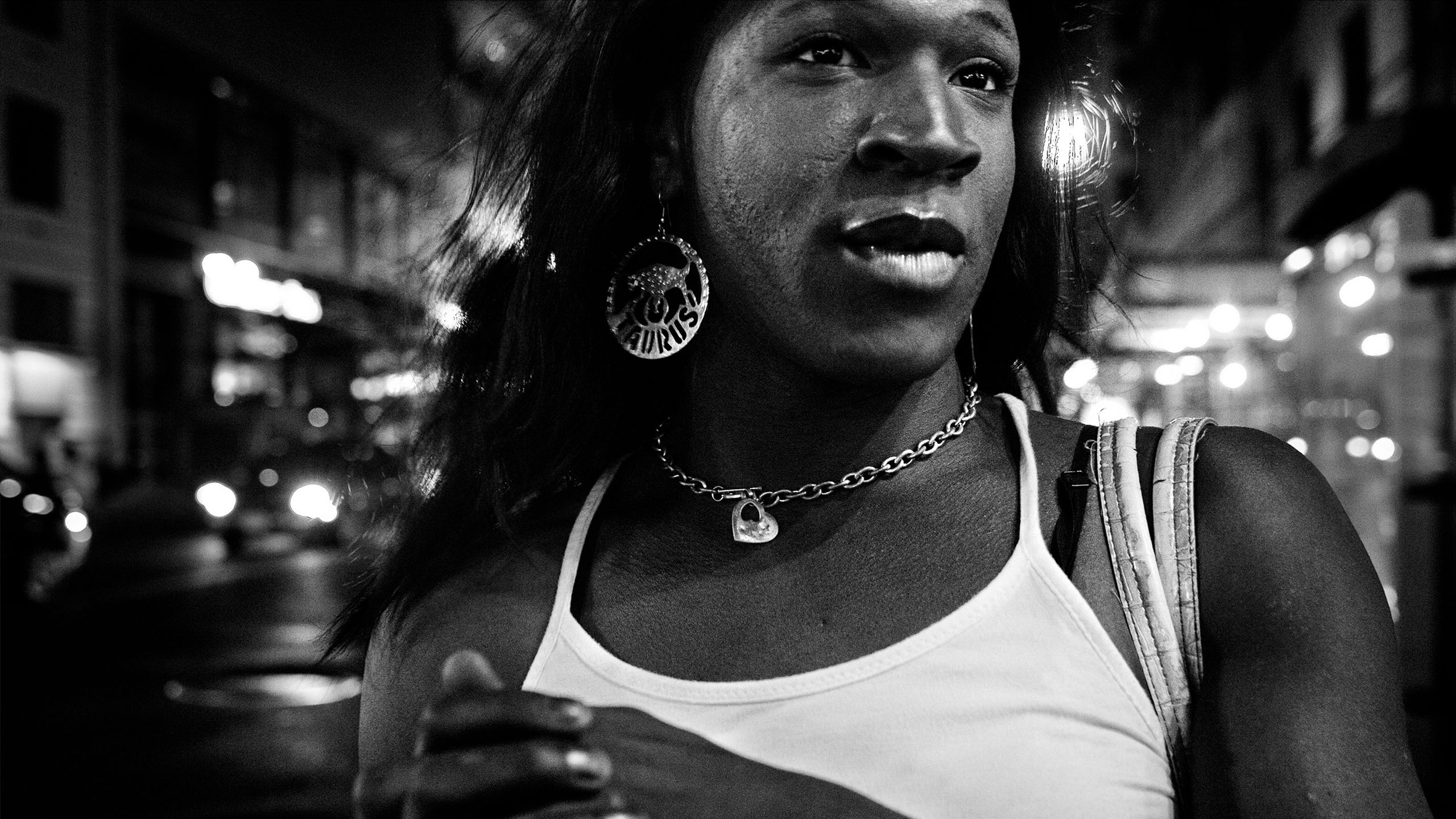A frank celebration of a pre-Giuliani New York, Kristen Lovell and Zachary Drucker’s The Stroll explores a unique period from the inside. Lovell––an actress, activist, and the producer of the seminal trans film The Garden Left Behind––knows the streets well, and after being the subject of a 2007 documentary about prostitution her eyes were opened to the possibility of one day making a film. In fifteen years, she’s gone from being homeless and sleeping at a Times Square megaplex to debuting her HBO-backed feature in Park City at the nation’s premier indie film festival.
This is a very personal history with those who worked “the stroll.” Or as Lady P tells it: when you have no opportunities you have to go to “the ho show.” The Stroll evokes HBO Documentary Films’ former bread and butter, the American Undercover series, which featured several documentaries by Brent Owens exploring the world’s oldest profession with titles like Pimps Up, Ho’s Down and Atlantic City Hookers: It’ Ain’t E-Z Being a Ho’. While The Stroll arrives a decade or two too late, it does offer a fair portrait of all stakeholders: from the trans youth who often have no choice or job opportunities to residents who, having gentrified the meatpacking district, would rather not wake up to sex acts being performed in front of their houses. The picture also unpacks the history of 14th St in what is now a luxury shopping, dining, and entertainment area along the High Line. The Gansevoort meatpacking district is now home to only seven meat packers, from a high of around two-hundred many years before.
But we are getting ahead of ourselves. While The Stroll is a lively, nostalgic look at a sisterhood that emerged as trans youth found a sense of community, it does acknowledge and pay tribute to the darker passages: the homelessness, the police strike forces (known as “Tasty Tuesdays and Thirsty Thursdays”), the violence against the trans community, and the gentrification of previously queer-owned spaces that were sold after AIDS ravaged the community.
Though this is a sweeping film that employs interviews and archival footage, Lovell (present onscreen) and Drucker (largely offscreen) find the documentation of their history to be an issue, and start uncovering more when they change their search term to include the now out-of-fashion “transvestite” in their inquires. This leads them to footage captured by a young RuPaul, who conducted playful on-the-street interviews for her 1990s Manhattan Cable TV show, where The Stroll was treated as a curiosity.
What sets this film apart from the American Undercover curiosities is access and Lovell’s desire to tell her own story with mentors and contemporaries––each regaling similar tales of being shunted from parents and heading to New York City. Some (Stephanie and Elizabeth) were raised as churchgoing, cisgender women in California; others (Tabytha) had at least one affirming family member. The film makes the case that rather than pushing problems away through “broken windows” policing and imprisonment (though Rikers Island, we learn, offered an “alternative lifestyle housing”) more support systems are needed. The picture ends on a promising note: the culture has changed and evolved, with more nonprofit support available––especially for youth transition.
The Stroll is ultimately a celebration of the colorful personalities that worked the streets and have a story to tell. It’s a history of multiple communities and an important contribution to New York lore; a story told from the perspective of someone who made history and is now in a position to write it.
The Stroll premiered at Sundance 2023 and will be released on HBO Max.

